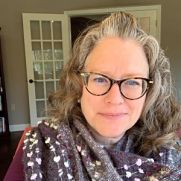The following articles are contained in Harvard Magazine, May – June 2021:
(1) Helping the Criminally Unlucky featuring Sociologist Sandra Susan Smith, who is dressed in black, with partially shaved head and smiles sardonically at the reader on the magazine cover. Smith studies work and incarceration in an “unequal, atomized America.” Some men and women, Smith admits, are able to find jobs even under difficult circumstances. This includes her own father, who planned ahead and trained for a new job, “eventually making much better money.” Yet Smith denigrates her father’s foresight and effort, labeling him “comparatively lucky.”
Smith saves her academic affections for those who make foolish choices and terrorize their communities. She calls attention to the alleged exploitation of convicted felons, who are seen as a “pool of cheap labor,” excluded from many employment opportunities and therefore “pressured into taking any job.” Smith also criticizes the hard-working men and women who refuse to give job recommendations on behalf of relatives with a “perceived irresponsibility”- i.e. a criminal record. Apparently it’s problematic to want to protect your reputation at work.
Smith does the urban black poor no favors by portraying them as victim of amorphous forces in government and society. Yes, it’s harder for some people than for others, but to deny moral agency is simply dehumanizing.
(2) Better than Forgiveness featuring Professor of Psychology Ellen Langer. I was immediately struck by the opening anecdote, where Professor Langer is invited to give a sermon, even though she is “not particularly religious.” What church would cede their pulpit to a non-religious, female psychology professor?
Langer chose to focus on forgiveness, remarking that “our forgivers are exactly the same people as our blamers.” In other words, forgiveness requires, as its predicate, a wrongdoer and a victim. This does not sit well with Langer, who would rather try to understand the alleged wrongdoer’s point of view, thus removing the need for forgiveness all together. “Trying to understand the motivations of others… is less limiting than mindlessly declaring a given action to be positive or negative.”
Langer is correct that, without judgment, there can be no forgiveness. But her conclusion – to suspend judgment rather than spread forgiveness – is chilling, especially when issued from the pulpit.
(3) Money for Smiles featuring Professor of Global Health Vikram Patel. Patel’s research asks the question “whether grants of money… lessen depression and anxiety.” The researchers gave cash to poor families in Kenya, who -- lo and behold – were then “significantly less depressed than members of control households.”
Patel’s research is hardly ground-breaking. Unexpected American cash, like manna from above, would likely bring some happiness to a poor family, at least for a time. Yet decades of anti-poverty programs teach us, if we will but listen, that redistribution entitlements lead to mental pathologies of all kinds. True mental peace cannot come from money alone, especially not other people’s money.
(4) Tackling Racial Capitalism featuring Harvard undergrad, Che Applewhaite. Che describes - or attempts to describe - his summer in St. Louis, that was funded by the Commonwealth Project. “Our team… was the first group of Harvard undergraduates tasked with a multi-pronged effort at making knowledge mutual: to assist front-line practitioners tackling racial capitalism in the city with our skills while we learned from their know-how.” Say wut?
As an attorney, I felt a flash of recognition when Che was assigned to do intake interviews for a class action lawsuit related to flooding and pollution, but then Che refused to continue “because doing that task felt inadequate to the situation.” Nonetheless, with help from “rapper and revolutionary Tef Poe,” Che states that “My awareness of a place, its people, and their complexities deepened, but tying them all together changed my mindset, to value an education aspiring toward a ‘we.’”
I think of the social and financial capital that brought Che to study at Harvard, and to summer in St. Louis. He seems to think he is doing good in the world. Yet even from his own, presumably self-serving description, I cannot discern what good that might possibly be.
Photo Credit- pinetrest.com

